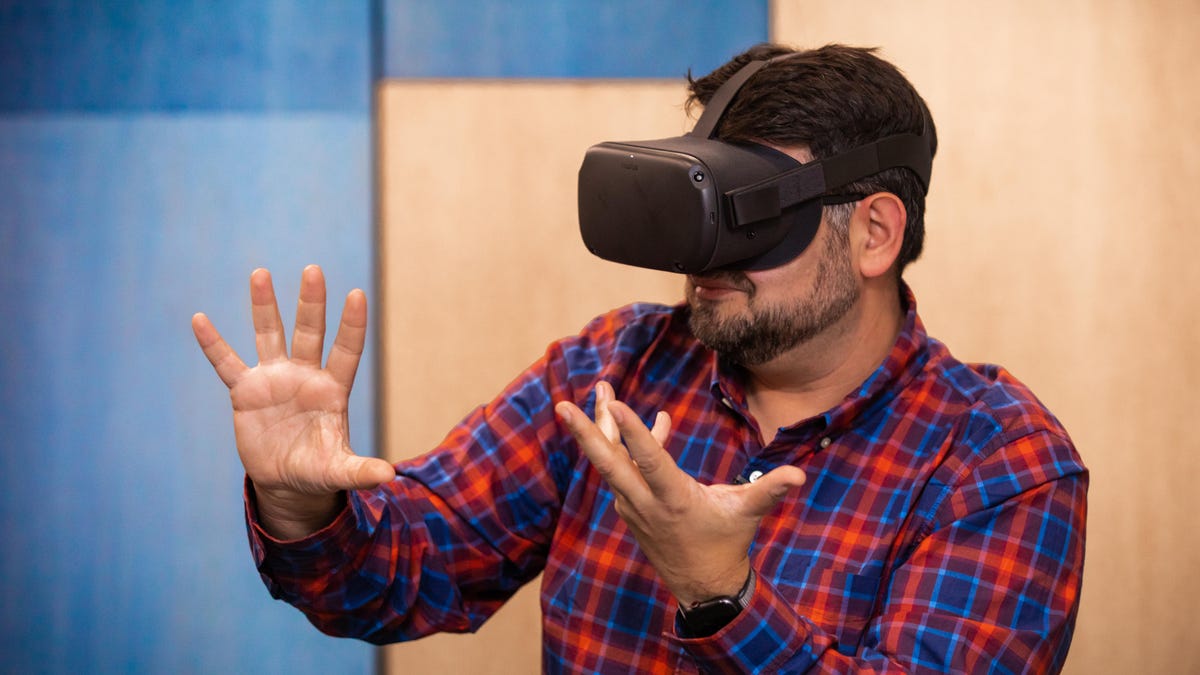Oculus Quest now works without controllers, sometimes
A promised hand-tracking feature for the VR headset arrived a lot earlier than expected, with more app support coming in 2020.

Ditch those controllers (for some apps, at least).
Facebook's Oculus Quest VR headset keeps getting new features. Last month, it added USB-C PC tethering for running more powerful Oculus Rift apps. Now, it can work without controllers, using the headset's external cameras to track your finger motion and hand movement.
Earlier this fall, hand tracking was unveiled as a feature coming in early 2020. It's part of Facebook CEO Mark Zuckerberg's plans to explore the possibilities of augmented reality through existing VR hardware like Quest. The software update, available this week, arrives much earlier than expected, but it's also an experimental feature and needs to be turned on in settings.
Hand tracking will work for the main OS, and for core apps like Facebook's web browser and Oculus TV. Imagine using your hands like remote controls and you've got the idea. It's not much yet, but certainly worth trying. An SDK for developers will come on Dec. 16 and allow hand-tracking support in apps after that, most likely towards 2020. But it's possible that hand-tracking updates in games and apps could roll out even earlier.
My early experience with hand tracking on the Oculus Quest back in October was shockingly good. It feels similar to what Microsoft's HoloLens 2 can do, but on a far less expensive headset. Hand tracking has its limits, though: The lack of vibration feedback or physical controls won't make it ideal for all games and apps. But it potentially makes what's already an Editors' Choice VR headset into an even better device.
Hand tracking is a VR and AR trend that you can expect to grow, especially with Qualcomm's next-generation VR and AR chips promising improved hand and face tracking in headsets next year.

